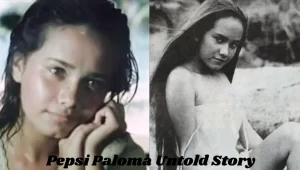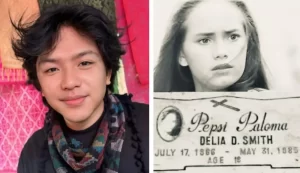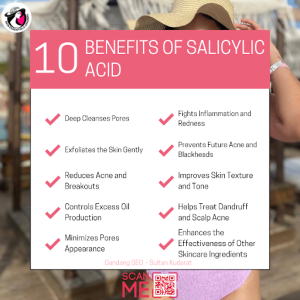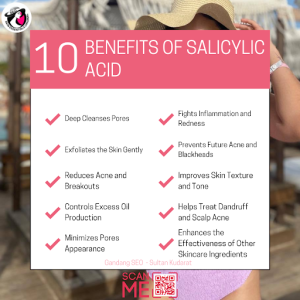
Pepsi Paloma’s life, marked by promise and tragedy, continues to captivate public attention. Rising to fame in the early ’80s, she became entangled in a notorious scandal involving allegations of rape and a legal battle that ended in controversy. Her untimely death in 1985, under mysterious circumstances, left unresolved questions that still linger today. The release of The Rapists of Pepsi Paloma in 2025 reignited interest in her story, sparking renewed debates on media ethics and the complex legacy of fame, scandal, and justice. Despite her short life, Pepsi Paloma’s tale endures as a symbol of both stardom and tragedy in Philippine pop culture.
Table of Contents
Pepsi Paloma Story That Still Has Everyone Talking
The Pepsi Paloma Story remains a poignant and controversial narrative that continues to stir public interest, even decades after her tragic passing. In recent years, her name has once again come to the forefront of conversations, largely due to ongoing discussions about her legacy, the scandal that marked her career, and the unresolved circumstances surrounding her untimely death.
In 2025, the release of The Rapists of Pepsi Paloma, directed by Darryl Yap, has reignited public curiosity, bringing her story back into the spotlight of Philippine pop culture. This renewed focus on the Pepsi Paloma Story has sparked important ethical debates about the portrayal of real-life tragedies in media, and the unresolved aspects of her life continue to fuel fascination with the Pepsi Paloma Story.
Who Was Pepsi Paloma?
Born Delia Dueñas Smith on March 11, 1966, in Manila, Pepsi Paloma was a rising star in the Filipino entertainment industry during the early 1980s. She began her career at the tender age of 14, making her debut in the film Brown Emmanuelle (1982). As part of the “soft drink beauties” group, she, along with her fellow actresses, was marketed as a sensual young star, embodying the provocative glamour of the era. These actresses adopted stage names inspired by popular soda brands, reflecting the period’s blend of commercialism and sensuality.
Over the next few years, Pepsi Paloma appeared in a variety of films, including Virgin People (1984), Naked Island (1984), and The Victim (1982), solidifying her place in the Philippine entertainment scene. Her career seemed poised for success, yet it would soon take a darker turn, thrusting her into the public eye for reasons far more tragic. The Pepsi Paloma Story was about to take a significant, tragic shift, and the Pepsi Paloma Story would soon become infamous for something much darker.

The Pepsi Paloma Scandal
In 1982, when Pepsi Paloma was only 15 years old, she accused three well-known comedians—Vic Sotto, Joey de Leon, and Richie D’Horsie—of gang rape after allegedly being drugged and assaulted in a hotel room. The scandal sent shockwaves through the entertainment industry, and Pepsi Paloma, with the help of her manager Rey dela Cruz and lawyer Rene Cayetano, pursued legal action. The case became a national sensation, raising not only questions about the horrific allegations but also the power dynamics at play in the Pepsi Paloma Story.
Although the comedians issued a public apology in the People’s Journal (October 1982), the case was dismissed after Paloma signed an affidavit of desistance. Reports suggest that political pressure, particularly from Tito Sotto, Vic’s older brother and a future senator, may have played a role in convincing Paloma to retract her accusation. Despite the public apology, the handling of the case raised suspicions of corruption and coercion, issues that continue to linger in the Pepsi Paloma Story. The Pepsi Paloma Story remains a testament to the complexities of power and public influence.
The Mysterious Death of Pepsi Paloma
On May 31, 1985, Pepsi Paloma was found dead in her apartment at the age of 18. Authorities ruled her death a suicide by hanging, with a diary found in her room suggesting that she had been battling depression and financial difficulties. However, the question of whether her death was truly a suicide or if foul play was involved remains unresolved and continues to stir debate. The tragic death of Pepsi Paloma is yet another mysterious chapter in the Pepsi Paloma Story, which has sparked ongoing speculation and intrigue.
Some speculators believe that her tragic death could have been the result of a larger conspiracy, potentially linked to the unresolved rape case and the immense pressure she faced throughout her life. The Pepsi Paloma Story has left many questioning the circumstances surrounding her passing, further fueling the public’s need for answers. Her death only added to the complex and unresolved narrative that continues to shape the Pepsi Paloma Story.

A Resurgence of Interest
In 2025, the release of The Rapists of Pepsi Paloma brought her story back to the forefront. Directed by Darryl Yap, the film delves into the rape allegations and the subsequent events, reigniting discussions about the ethical implications of dramatizing such sensitive real-life events. Known for his provocative films that often touch on themes of historical revisionism, social issues, and media ethics, Yap has once again polarized the public with his portrayal of Paloma’s life. This portrayal reignites the Pepsi Paloma Story in a way that draws new attention to the unresolved issues.
This film has also led to new legal challenges. Actor Vic Sotto has filed a cyber libel complaint against Yap, claiming that his name was unfairly implicated in the film’s teaser. The ongoing legal battle has only intensified the public’s interest in the case, ensuring that the tragic Pepsi Paloma Story remains in the media spotlight. The Pepsi Paloma Story is not only being examined in a new light but continues to be a focal point of public debate and intrigue. This renewed focus on the Pepsi Paloma Story is a testament to the enduring nature of her legacy.
Legacy and Impact
Pepsi Paloma’s life and death left an indelible mark on Filipino culture, symbolizing the intersection of fame, tragedy, and injustice. Once celebrated as a rising star, her career was marred by the scandal that became synonymous with her name. Despite attempts to silence discussions surrounding her, Paloma’s story endures, resonating with the public—especially as new generations learn about her life and the mysteries surrounding her death through films, articles, and legal battles. The Pepsi Paloma Story has become emblematic of a culture that continues to grapple with the legacy of her life and death.
As the release of The Rapists of Pepsi Paloma approaches, the unresolved aspects of her story continue to raise difficult questions. Was her death truly a suicide, or was it the result of a larger conspiracy? And how will her legacy be remembered, particularly given the controversies that still surround her name? These unanswered questions only continue to drive the Pepsi Paloma Story into the spotlight. The Pepsi Paloma Story serves as a timeless symbol of tragedy.
Paloma’s story serves as a haunting reminder of the complexities and often painful lives of public figures. The mystery of her death, combined with the unresolved rape case, ensures that the Pepsi Paloma Story will remain a topic of national discussion for years to come. With the media attention sparked by the upcoming film and the ongoing legal challenges, Pepsi Paloma’s story will continue to be debated and remembered, perpetuating her legacy of tragedy and intrigue. The Pepsi Paloma Story remains a critical part of the Filipino cultural narrative.
Ethical Implications of the Film
The release of The Rapists of Pepsi Paloma has reignited an ethical conversation regarding the portrayal of real-life tragedies in films. While the film has reignited interest in Paloma’s story, it has also raised questions about sensationalism and the potential harm of dramatizing such traumatic events. Public figures like Vic Sotto, who are involved in the ongoing legal case, have expressed concerns about the potential damage to their reputations. For many, the film represents not only an opportunity to remember Paloma but also a chance to reflect on the broader implications of media responsibility when dealing with sensitive topics. The ethical considerations surrounding the Pepsi Paloma Story continue to be a source of controversy.

Conclusion: A Legacy Marked by Controversy
Pepsi Paloma’s life, though brief, was marked by extraordinary promise overshadowed by scandal and tragedy. Her legacy, though complicated, continues to shape conversations about gender, power, and justice in Filipino society. Through films, media coverage, and ongoing legal battles, the fascination with her story shows no signs of waning. Despite the challenges she faced, Paloma’s impact—whether through her acting career or the enduring questions surrounding her death—has left an indelible imprint on the public consciousness. As the film The Rapists of Pepsi Paloma premieres, it serves as a catalyst for renewed reflection on the injustices that defined her life. The Pepsi Paloma Story will remain a topic of discussion and remembrance for years to come.
Disclaimer
The content shared in this article regarding Pepsi Paloma’s life, career, and tragic death is drawn from publicly accessible sources and historical media reports. While the article discusses the rape allegations, legal actions, and the aftermath of the case, it is important to note that these events have been interpreted and reported by various media outlets over time. The film The Rapists of Pepsi Paloma is a dramatized version of her story, and while it is based on real-life events, it reflects the creative liberties taken by filmmakers.
This article does not claim to be a definitive or exhaustive account of Pepsi Paloma’s life and the controversies surrounding it. Given the sensitive nature of the topics discussed, including allegations of sexual assault, public scandals, and her untimely death, the information presented should be considered as an overview rather than a full investigative account.
Due to the legal complexities surrounding the events, as well as differing accounts of those involved, readers are encouraged to consult the original sources mentioned in the article, such as court documents, news reports, and interviews, for a more comprehensive understanding.
Frequently Asked Questions FAQ
1. Who was Pepsi Paloma, and what was her role in the Philippine entertainment industry?
Pepsi Paloma, born Delia Dueñas Smith, was a rising star in the Filipino film industry during the early 1980s. She was known for her roles in several popular films, including Brown Emmanuelle (1982) and Virgin People (1984). Paloma was part of the “soft drink beauties” group of actresses, characterized by their sensual roles and stage names derived from soda brands. Her story became even more tragic, marking the Philippine entertainment scene with what would later become the infamous Pepsi Paloma Story.
2. What are the allegations against Vic Sotto, Joey de Leon, and Richie D’Horsie?
In 1982, at just 15 years old, Pepsi Paloma accused comedians Vic Sotto, Joey de Leon, and Richie D’Horsie of gang-rape after allegedly being drugged and assaulted in a hotel room. Despite the public apology issued by the comedians, the case was dismissed after Paloma signed an affidavit of desistance. Many speculate that political pressure, especially from Tito Sotto, played a role in the retraction. The allegations surrounding this event became a central part of the tragic Pepsi Paloma Story.
3. What was the cause of Pepsi Paloma’s death?
Pepsi Paloma was found dead on May 31, 1985, at the age of 18. Her death was officially ruled as suicide by hanging, with a diary found suggesting she struggled with depression and financial issues. However, there has been much speculation over the years about whether foul play was involved, especially considering the circumstances surrounding her legal case and public pressure. Her untimely death added to the mystery and sadness surrounding the Pepsi Paloma Story, leaving many questions unanswered.
4. How has Pepsi Paloma’s story resurfaced in recent years?
Pepsi Paloma’s story has been reignited with the release of The Rapists of Pepsi Paloma (2025), a film directed by Darryl Yap that dramatizes the events surrounding the rape allegations and her tragic death. The film has stirred public debate about the ethical implications of depicting real-life tragedies and sparked legal reactions, including a cyber libel complaint by Vic Sotto. This film brings the Pepsi Paloma Story back into the limelight, provoking conversations about the impact of media in portraying sensitive issues.
5. What legacy did Pepsi Paloma leave behind?
Pepsi Paloma’s tragic life and death have left a lasting impact on Philippine culture. Despite her brief career, she became a symbol of the intersection between fame, scandal, and injustice. Her legacy has been kept alive through films, ongoing media discussions, and legal battles, keeping her story a part of the national conversation for decades. The Pepsi Paloma Story continues to be a poignant reminder of the complexities surrounding fame and tragedy in the public eye.










